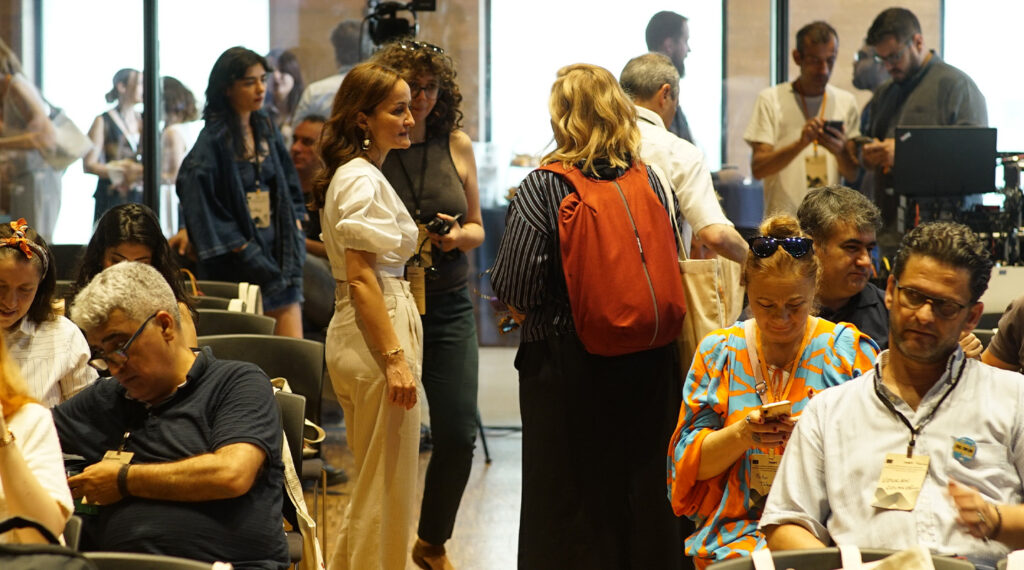On the need for strong civil society

More than 40% of the population around the world are eligible to vote this year, but representative democracy, while essential, is not sufficient for lively democracies.
The human-rights based order is turning into something new, where States claim more power. That’s why the separation of powers and the participation of society in democracy are crucial. To achieve this, civil society organisations need to be built, and need good relationships with government to complement voting. Full respect of the freedom of association, assembly, and the freedom of expression are therefore essential to creating, and maintaining, vibrant democracies.
Accountability: a two-way street
In light of the global rise of the political far right, this is a timely topic. Indeed, autocracies are eroding the right to express political dissent across the world and there are clear challenges faced by democratic systems worldwide. Issues on the rise such as racism, xenophobia and populism, and their impact on democracy and civil space, are rightly under continual discussion.
How can we improve accountability and democracy, and how can we enhance participation in our decision-making processes? The right to protest and assembly, a fundamental aspect of freedom of association, and the challenges faced by human rights defenders are critical factors to address. In Türkiye, the lack of accountability seems to be a wider issue, affecting not only the public institutions, but also civil society itself. Civil society is called upon to lead by example, by being more accountable to the groups it claims to represent and support, and to rethink their ways of interacting with society.
Civil Society demands an enabling environment
Civil society organisations are stigmatised and hampered in their activities. Trends in Europe are similar to those identified in the Philea Comparative Highlights publication, but they really come to life through people’s testimonies. Audits, as one example, should be supportive but can be oppressive, and access to finance is likewise an additional concern, reflecting the experience from international experts with the Financial Action Task Force, and with banks which are de-risking from supporting civil society. In Türkiye, the “agent of influence law,” which was initially reported to be presented to the Parliament but was later stated to be withdrawn, has caused significant concern among civil society organisations. In an environment where there is a lack of sufficient public resources for civil society and restrictions in the fundraising law, CSOs using legitimate foreign funds face the risk of stigmatisation. It is vital to keep using the legal system to counter restrictions on foreign funding.
The impact of emerging technologies
We are also witnessing the impact of emerging technologies on the freedom of association. Facial recognition is one example where the use of biometric data in security policies can breach the right to privacy, and the freedoms of expression and movement. The use of data-intense systems, combined with a lack of transparency on the transfer of data, is also problematic. Social media, as another example, has on the one hand become an important tool for organising and amplifying messages, but it also risks exposing civil society to targeted attacks and harassment. The principles of necessity, proportionality and legality are essential in this context.
Solidarity is the way forward
So what can be done? In a context where the right to protest is under attack globally, demonstrated by repressions against groups expressing solidarity with Palestine, with LGBTQI+ communities, feminists, environmental defenders, migrants and minorities in several countries, the solutions must be creative. International organisations must play pivotal role in safeguarding civil society, promoting best practices, and fostering global partnerships. To this we can add a strong sense of solidarity, which will hopefully lead to increased collaboration and coalition building. Last but not least, it is vital to keep sharing insights, resources, and ongoing advocacy work at European and international levels, and to share free digital tools and services for civil society.
Future outlook
What does the future hold, now that we are witnessing a shift to the right in Europe? The European Union served as a reference point for human rights for Türkiye, yet it remains to be seen how this will evolve after the recent EU elections. Hope for an alternative future can be found in rights-based movements around the world, notably the women’s movement, climate movement and the wave of solidarity with Palestine, all of which brings us back to the importance of a strong civil society.
The insights from this article result from discussions during the Third Sector Foundation of Türkiye (TUSEV) and Civil Society Development Center (STGM) meeting in June. The event convened around 200 participants from 15 countries to exchange best practices across borders on building a strong civil society. The conference, organised under the EU-funded project “Monitoring Freedom of Association,” featured five sessions with 28 panellists discussing various aspects of civil society and participatory democracy, centred around the freedom of association.
Authors


